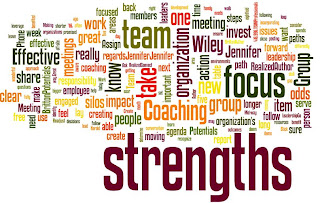The end of every year is often a blur with holiday parties, lunches, and running to get projects wound up. Are you and your team building in some time to reflect on your successes, and learning, this year? Even 10 minutes spent in dialogue looking at key milestones can be important in supporting the team to create awareness around your achievements.
Some of the questions you may want to bring into a staff meeting before the end the year are:
 1. What have been our biggest achievements this year?
1. What have been our biggest achievements this year?2. What has been our biggest learning this year?
3. What strengths/bench strength are we developing as a team?
4. What is our team known for (or getting known for - in our organization, across teams, with our customers or stakeholders)?
5. What is the one outstanding project/task if left undone this year, could derail us?
6. Our most important focus for 2013 is going to be _________
7. I'm going to commit to bring the following to the team/to work: ____________________
8. I am looking forward to __________________ during 2013.
Realistically you may not have time to discuss all of these as a team. They can be useful in incorporating into one-on-one conversations you have as well.
What are you and your team doing this year end to pause, reflect and celebrate?
Have a great week,
Jennifer
Jennifer Britton, MES, PCC, CPT
Potentials Realized - Retreats, Leadership and Teamwork
info{at}potentialsrealized{dot} com
(416)996-8326
Some of the other related posts you may wish to look at are :
Corporate Retreats - 4 Things to Consider
Teams on Thursday - Teams in the Downturn
10 Signs it's time for a Team Tune Up
Mapping Your Team's Strengths













